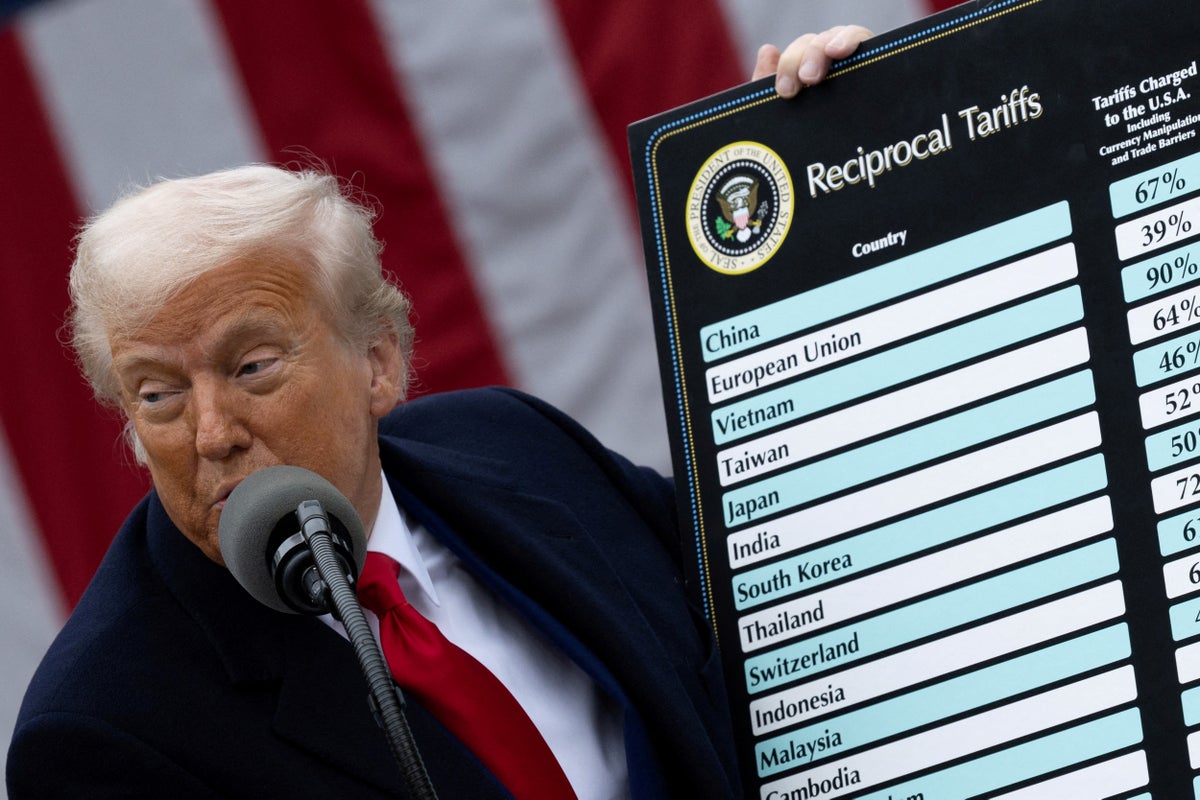
A federally funded food program that supports more than 6 million mothers and children in low-income families is at risk of significant disruptions during a prolonged government shutdown.
But Donald Trump’s administration now says that revenue from the president’s sweeping tariff agenda will keep the program afloat, raising serious legal questions about how the White House is unilaterally making decisions about imposing taxes and then choosing what they fund.
The Special Supplemental Nutrition Program for Women, Infants and Children — also known as WIC — is supported by $8 billion in federal funds approved by Congress each year. The program provides vouchers for infant formula, fresh produce and other healthy food that is often out of reach for low-income households.
WIC has not received a requisite annual infusion of federal funding. Without a new spending plan from Congress to end the government shutdown, WIC could, effectively, run out of money without state support. The program is currently supported by a contingency fund, but advocates fear it could quickly dry up.
White House press secretary Karoline Leavitt said the administration found a “creative solution to transfer resources from Section 232 tariff revenue” to keep WIC alive.
That plan, first reported by Axios, will fund WIC “for the foreseeable future,” according to the White House.
“The Trump White House will not allow impoverished mothers and their babies to go hungry because of the Democrats’ political games,” Leavitt said Tuesday.
But it’s unclear how the administration can legally do that, once again raising constitutional questions about the president’s attempts to get around Congress that are at the center of an avalanche of lawsuits against him.
“At the risk of sounding alarmist, this sounds like another nail in the coffin for Article I,” said Daniel Bunn, president of the nonpartisan tax policy group the Tax Foundation, referencing the constitutional authority of Congress.
“If [the Supreme Court] doesn’t act to limit the president’s tariff powers, and the president can just ignore the expired spending legislation, then why do you need Congress?” he said.
The Supreme Court is scheduled to hear oral arguments in a critical case challenging the legality of the president’s tariffs next month. Federal judges have determined that the decades-old law that Trump has repeatedly invoked when imposing sweeping import taxes on goods from most of the world does not grant him the authority to do so.
Tariff money is collected in a general fund managed by the U.S. Department of the Treasury. But the fund remains essentially frozen until a bill is passed to fund the government, or until legislation is passed by Congress specifically earmarks how that tariff revenue can be used.
Last month, the Treasury Department reported $31.7 billion in tariff revenue, bringing total collections so far this year to $190 billion.
“We welcome efforts to keep WIC afloat during the shutdown, but families need long-term stability, not short-term uncertainty,” said Georgia Machell, president of the National WIC Association, an advocacy group.
“We still don’t know how much funding this measure provides, how quickly states will receive it, or how long it will sustain operations,” she added. “There is no substitute for Congress doing its job. WIC needs full-year funding, not just temporary lifelines.”
The Department of Agriculture last week warned state agencies that they will not receive a quarterly allocation from the federal government for WIC dollars in the fiscal year ending September 30, due to a lapse in funding during the shutdown.
At the current rate, without a deal in sight, advocates say the program has one to two weeks to stay afloat.
But even if the shutdown ends, the program is expected to continue to face funding shortfalls that could reduce benefits and prevent people from enrolling.
“Congress must act with urgency to pass legislation that fully funds WIC, keeps the federal government open, and ensures that federal appropriations law cannot be undermined by administrative actions,” Machell said last week. “Every day of inaction brings us closer to a crisis.”
